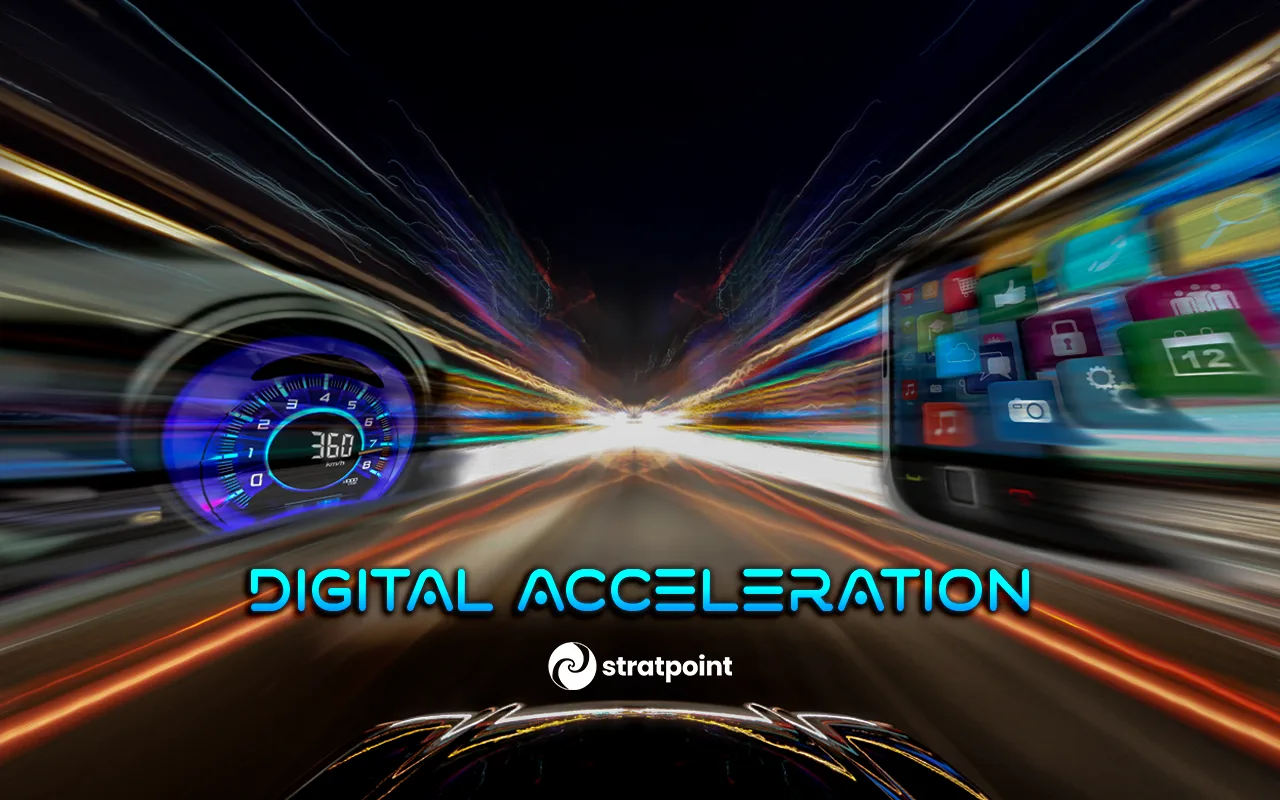We all witnessed the same thing. For years, digital transformation was something to aspire for. It was a major initiative only made possible by a big team with deep pockets. It took an international health emergency to bring digital transformation to the top of a company’s priorities.
Three years later, almost everything is digital. And while we are free to go back to brick and mortar shopping, business is just not reverting to the way it was before. In the ultra fast pace of the global economy, companies have to adopt cutting-edge technologies — automation, AI, data, and more — just to stay afloat. Simply digitizing is not enough anymore. The way forward is digital acceleration.
What is digital acceleration?
Digital acceleration is the rapid adoption and implementation of digital technologies and processes. Companies in the process of digital acceleration identify business aspects that can be improved and optimized, and they use technology to implement these improvements quickly and efficiently. They do this in order to stay competitive in the market.
Digital acceleration vs digital transformation
Even though the narrative is now shifting away from transformation, one thing is clear: digital acceleration cannot happen without digital transformation. Moreover, the former is not just another buzzword to replace the latter. Rather, we are going through a transition from fundamentally changing the way a business operates to achieve efficiency (transformation) to speeding it up through technology (acceleration). Digital acceleration brings speed and continuity to digital transformation.
One common example of this transition is retail. In the digital transformation era, retail companies focused on implementing an enterprise resource planning (ERP) platform, so they could digitize their processes end-to end: from sourcing, inventory, selling, to customer service. Later on, they migrated all their systems to the cloud. They put up websites to sell their goods online. Based on their increased productivity and sales channels, their digital transformation initiatives were successful.
Then, going digital became too basic to stay competitive. Retail companies quickly launched apps that could handle browsing, checkout, fulfillment, and delivery. It had mechanisms to make recommendations to users based on their preferences and what was trending among customers. It automated promotions to customers and increased their likelihood of orders. At the back office, it captured historical and seasonal data to help their logistics team optimize stocks while retaining high service levels. RFIDs enabled the warehouse team to efficiently pick, pack, and dispatch goods for delivery. In the near future, all we will need to do is wait for a drone to drop off our groceries. That is digital acceleration.

With digital acceleration, drone deliveries will soon be a regular sight.
Leveraging digital acceleration in your business
Better and faster is the battlecry of digital acceleration. Here are some examples.
Business process automation
Many business processes, while crucial, can be repetitive: IT support, employee onboarding, customer onboarding, sales invoicing, and many more. A person assigned to the IT help desk may get multiple calls in a day about the same device error. Automating the IT help desk process may entail a bot triaging inquiries, assigning specific issues to specialists, and handling simple cases by itself — all without the user knowing it was speaking with a bot. Meanwhile, the IT team can focus on more complex cases and have the bandwidth to handle more strategic projects.
Artificial intelligence and machine learning
Already a part of our daily lives today, AI performs tasks that usually require human intelligence like following commands and making decisions. Amazon’s Alexa, for example, is a helpful tool that serves its user as a timer, a calendar manager, and even an entertainer. Alexa can shop for an entire week’s worth of groceries without the user having to lift a single finger.
An AI like Alexa uses natural language processing to understand and to respond to its user. It improves its performance over time, by receiving more commands, doing more tasks, and getting feedback — through machine learning.
Machine learning is also how Netflix analyzes viewing history, search history, and other data to display movies that a user will most likely click on and watch from their feed.
Internet of Things
IoT is a network of devices — “things” — that are embedded with electronics, software, and sensors. They gather data, exchange information, and automate processes.
A manufacturing facility can use IoT to monitor the performance of their machines and identify which aspects of their production line can be made more efficient. With enough data, the manufacturer can accurately predict the most optimal time to service their machines or replace parts, so they can save on maintenance costs and eliminate downtimes.

Through AI, businesses serve customers faster, more seamlessly, and more efficiently.
Accelerating, onward
Companies still standing amid the ruins of a pandemic have done a great job adopting a digital way of doing business. Now it’s time to move forward. To keep the momentum brought about by digital transformation, we look to cutting-edge technologies — automation, artificial intelligence, machine learning, internet of things, and data — to operate better and faster and to offer more value to customers.
Stratpoint is your digital acceleration partner, enabling companies to adopt the latest, most innovative technology solutions to enrich experiences, empower businesses, and uplift communities. If you’d like to explore digital acceleration applications, let us know in the form below.




